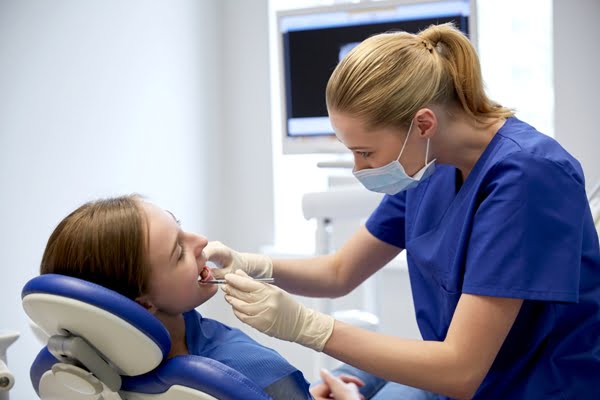Oral cancer refers to abnormal cell growth in the mouth that causes serious damage to surrounding tissues. It occurs when there are changes in the DNA mutation of the cells in certain parts of the mouth. The mutation of cancer cells might result in the formation of tumors that spread throughout the mouth, head, neck, and other parts of the body.
Cancer can occur in the tongue, lip, cheeks, gums, soft and hard palate, the floor of the mouth, sinuses, and pharynx. This type of cancer is categorized as head or neck cancer and is often life-threatening if not immediately diagnosed and treated.
Signs and Symptoms

Early detection of oral cancer plays an important factor in its prevention. Common signs and symptoms of oral cancer include:
● Unexplained bleeding
● The appearance of velvety, white patches
● Lumps/bumps, swelling, rough spots
● Numbness or pain in areas of the mouth, face, or neck
● Soreness in the back of the throat
● Drastic weight loss
● Hoarseness of voice and chronic sore throat
● Difficulty chewing and swallowing
● Sores on the mouth, neck, and face that do not heal
● Ear pain
Who’s at Risk
While it is not clear what causes the development of oral cancer in the squamous cells (flat, thin cells that line lips and the inside part of the mouth), there are certain factors that might add to your risk of developing oral cancer.

● Tobacco – Tobacco use is a major risk factor. 90 percent of people who use tobacco of any kind (e.g. cigarettes, cigars, pipes) have a high risk of developing oral cancer. The longer the person smokes tobacco, the more s/he is at risk of developing the disease.
● Alcohol – About 70 percent of heavy alcohol drinkers have been diagnosed with oral cancer. People who are heavy drinkers and chain smokers have even higher percentages of developing mouth cancer.
● Poor Nutrition – The risk of developing oral cancer can be associated with consuming a diet containing few fruits and/or vegetables. Eating a healthy and well-balanced diet can help reduce the risk.
● Human Papillomavirus (HPV) – Various studies have linked HPV to the oral cavity and oropharyngeal cancer. HPV infection can be transmitted through sexual contact. A person engaging in oral sex with an HPV-infected person has an increased risk of developing cancer.
If you suspect you might have oral cancer symptoms or risk, contact Riverview Family Dental at (519) 813-9090 or email us at [email protected] to book an appointment. We apply modern technologies to detect oral tissue abnormalities. Call us today.

